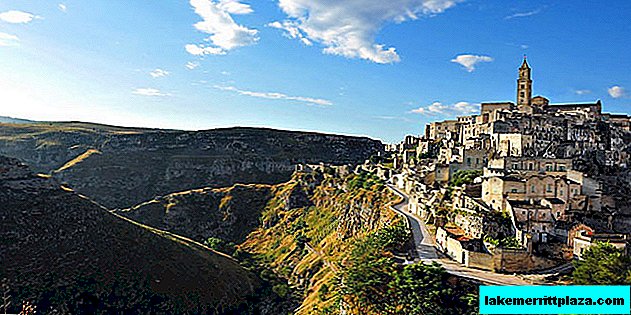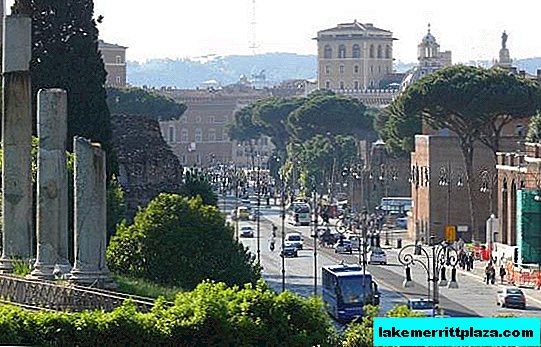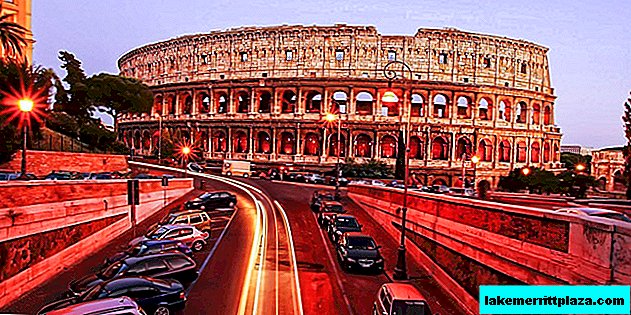A unique boutique hotel located in the ancient caves of the ancient Matera region. The ascetic simplicity of the atmosphere underlines the special atmosphere of a "frozen history"
Civita Caves (Sextantio Le Grotte Della Civita) is a truly unique hotel located in Matera, an ancient city in southern Italy, which is included in the UNESCO World Heritage List.

Its ancient district of Sassi (sassi means "cliffs, cliffs") is built inside and outside of limestone caves, intertwined with narrow cobbled streets. Uninhabited since prehistoric times, these amazing underground spaces even include churches carved into the rock, not to mention half-carved, half-rebuilt dwellings.

Civita is one of the neighborhoods in this amazing area. The Civita Cave Hotel built here consists of 18 cave-carved rocky rooms, sometimes reaching an area of 100 square meters, and a restaurant. The hotel was restored for about 10 years, during which great attention was paid to details and ancient elements of the situation so as not to disturb the atmosphere of this place.

The hotel consists of three levels, which are interconnected by terraces passing over a gorge punched by the Gravina River. The ancient caves were restored and furnished in the spirit of conservatism: all the furniture here is absolutely simple in style, and bed linen is sewn from linen, as was done at the beginning of the twentieth century.

Arriving guests here are greeted with clean water, fresh seasonal fruits, sweets, liquors, a dozen lighted candles and the aroma of natural oils.

For breakfast, served in the old church, sweets, biscotti, jam, local cheeses and cold meats are served. At the same time, despite the atmosphere of antiquity, each room here is equipped with a modern climate control system and Internet access.

However, you should be prepared for the fact that originality and an individual approach cost money. The price of a classic double room in a hotel starts from 300 euros per night (at a discount you can find it for 200 euros), a suite will cost 500-700 euros, and an executive suite 700-1000 euros. Book a room on Booking.com. By the way, on this popular tourist portal, the Sextantio Le Grotte Della Civita received a record 9.5 points out of 10.
An alternative and more affordable option to cave in Matera is the Caveoso Hotel next door. Prices are more reasonable in the range of 100-200 euros, depending on the room. Some rooms have a small balcony overlooking Sassi, and some are in the grotto. We stayed here with our family and were satisfied.

It is worth noting that the Sassi area in Matera is included in the UNESCO World Heritage List. Its architecture and history is unique (Carlo Levy wrote very well about them in his book "Christ Stayed at Eboli"). Due to the mild climate throughout most of the year, the inhabitants of Sassi spent most of the time on the street, going under the roof only for sleep. The caves were furnished very poorly, even ascetically. That is why even now they were reconstructed in a minimalist style. The masters had the task through the simplicity of forms to convey the relationship between history, nature and modern life.
- Hotel address: Via Civita 28, 75100 Matera
- Phone: 0835 332744
- Email: [email protected]

How to get there
Aircraft
The nearest airport is Bari Palese, about 60 km from Matera. Bari Airport accepts domestic flights from Milan, Rome, Verona, Turin, Venice and Bologna. International flights arrive from London (London Stanstead and London Gatwick), Paris, Brussels, Cologne, Bucharest, Stuttgart, Monaco Dusseldorf, Frankfurt and Valencia. You can rent a car at the airport. You can find a suitable option at auto.italy4.me. To get from Bari to Matera, you must first follow the directions to Modugno, then to Altamura (SS96), and then to Materu.
Car
If you are traveling from the Tyrrhenian coast, take the Salerno to Reggio Calabria highway and head towards Potenza. From there, take the SS 407 highway to Metaponto, and then to Ferradina and finally to Matera.
From Calabria, again, on the Reggio Calabria-Salerno highway, go to Sibari. From here, follow the SS 106 road from Jonica to Taranto, and when you get to Metaponto, take the exit for Matera.
A train
Train Rome Bari. Upon arrival in Bari, transfer to the local Ferrovia Appulo Lucane railway line. The road to Matera will take about 60-90 minutes. Further information on train prices and timetables: www.trenitalia.com
Instructions on how to buy a train ticket in Italy on your own
Bus
Marino bus lines connect Matera with Milan (Milano), Bologna, Naples (Napoli), Novara, Parma (Parma), Reggio Emilia and Urbino. They also send buses outside of Italy. Additional information on prices and bus schedules: www.marinobus.it
Bus services Marozzi and Lishio send transport from Matera to Rome, Florence, Pisa and Siena. The journey to Rome takes 7 hours. Further information: www.marozzivt.it and www.autolineeliscio.it








